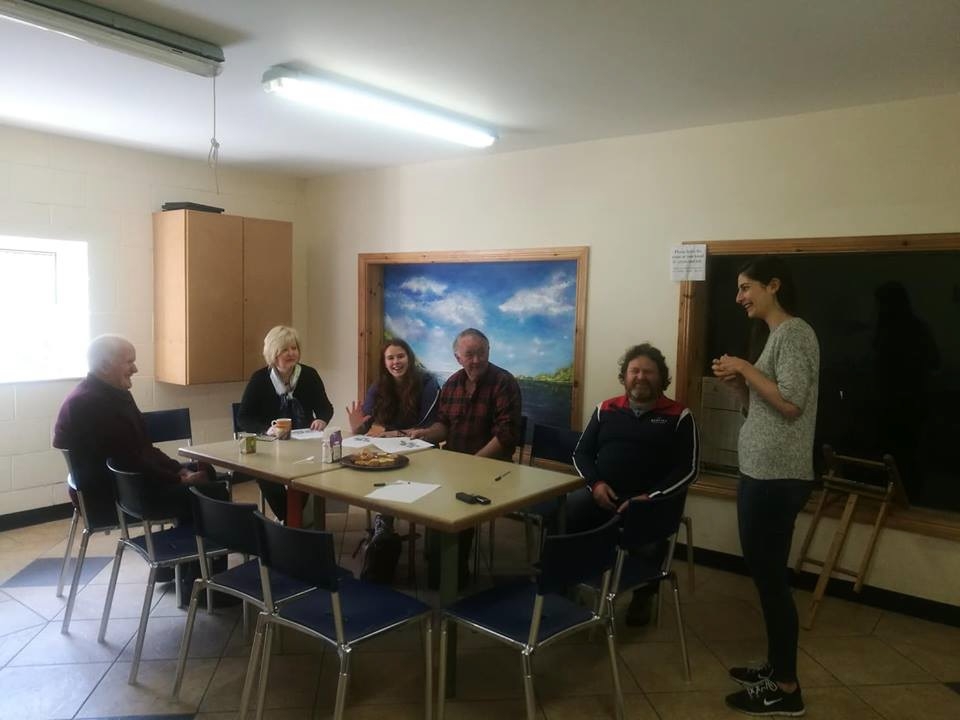
Flood Risk: Safeguarding your well from flooding and contamination
Significant flooding events have the potential to mobilize contaminants within the environment and into groundwater. As a result, private well users can potentially be exposed to health hazards including pathogens) after nearby floods. In Ireland, the quality of each private groundwater well is the sole responsibility of the owner, which, coupled with a general lack of well stewardship, identified in several previous studies, makes them particularly ill equipped to prevent and manage the effects of sporadic environmental contamination from flooding.
The implications of significant flooding events and their potential to trigger groundwater contamination and waterborne illnesses is a particularly understudied field of research, which requires communication with the general public to derive meaningful conclusions that will lead to policy development to safeguard health. As such, through the ESAI/EPA Grassroots scheme, we hosted several focus group sessions to bridge the gap between science and community and explore flood-risk preparedness amongst private well owners.
Used widely within various disciplines, but perhaps not too frequently within ‘hard’ scientific discourse, focus groups consist of a discussion (lead and supervised by moderators) between 4 to 12 individuals with common characteristics (e.g. gender, geographical location, socioeconomic status, age, income level, marital status, etc.) on a topic of choice. It is a highly valued method in the exploration of people’s knowledge, past-experiences, etc. and relies, by design, on inter-participant communication. This methodology gives a voice to well owners and allows researchers to understand their subjective experiences and opinions.
In the beginning, it was envisioned that one ‘big’ focus group session would take place in the University of Limerick, but upon reflection, this was deemed an inappropriate means of interaction; the academic setting was potentially off-putting and the participants would largely have come from the campus community. Instead, it was decided to target local communities on the ground. Areas where flooding had previously occurred were identified all over Ireland, and contact was made with local parishes, schools and GAA centres to book a venue (at a nominal cost) to host the focus sessions. Door to door knocking and leaflet distribution was the primary recruitment method and in order to gain further interest, a free water sample analysis was offered (funded by the GRAppLE project (GSI)). In total, 7 meetings were hosted between April and June of 2018 (Table 1), largely within GAA halls and parishes of small towns in Ireland (Fig 1).
Table 1: Details of focus group sessions carried out.

Figure 1: Focus Group session in Clonlara GAA centre, County Clare.
As previously mentioned, meeting locations were selected based on wide-ranging local experience with flooding events, and some level of geographical distribution was attempted. Despite that, options and behaviours remained relatively similar across all discussions. Principal themes within session were: i) general thoughts on water quality; ii) thoughts on their own water; iii) previous flood experience; iv) perceived vulnerability and severity; v) general thoughts and attitudes towards protective behaviours; vi) thoughts on social acceptance; vii) one’s own ability to take protective action; and vii) cues to action that would cause them to engage in post-flood protective behaviours.
In general, participants preferred their own well water to mains water, mentioning parameters such as taste and overall quality, despite very infrequent well water testing habits. Only a few of the participants would consider themselves at risk of flooding and most of them reported never having been personally affected by floods. Nevertheless, there was general agreement that nearby floods could contaminate wells and cause illnesses, particularly if floodwater covered the wellhead and if there was agricultural exploitation nearby, and most declared intention of taking protective measures if floods did occur near their wells. Testing well water and drinking water from alternative sources were amongst the most supposed protective measures. In general, participants agreed that it is the well owner’s responsibility to ensure well water quality after floods, however, more than a few raised the issue of not feeling prepared to deal with the issue of floods affecting their wells, including not knowing where to go to get their well water tested. Finally, the most stated cue to action was perceptible change in water’s taste, odour or colour, which highlights the danger of “invisible” water contamination.
All arguments raised in the discussions, can now be analysed in order to identify factors that pose negative effects to desired health-behaviours. This programme was of great value, providing invaluable insight into the too often ignored public aspects of groundwater contamination, and will provide a narrative for shaping future research studies.
The focus group meetings were co-organised by researchers from University College Cork, University College Dublin, and Dublin Institute of Technology and were kindly supported by the EPA-ESAI Grassroots Workshop Support Scheme and further supported by Geological Survey of Ireland, and Irish Research Council.
By Jean O'Dwyer and Luisa Andrade